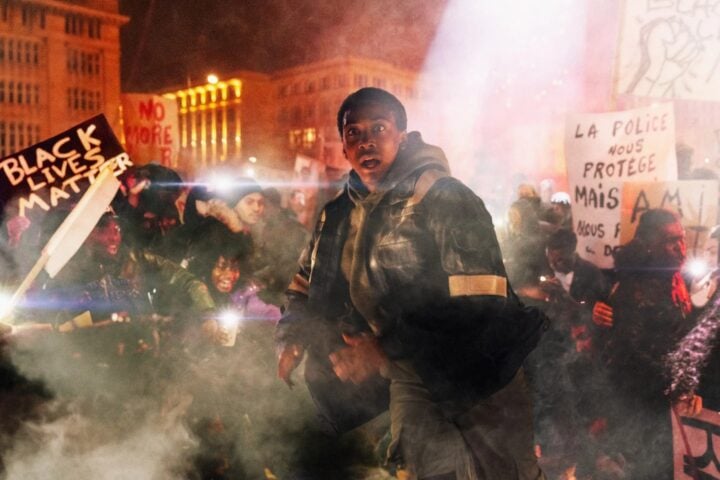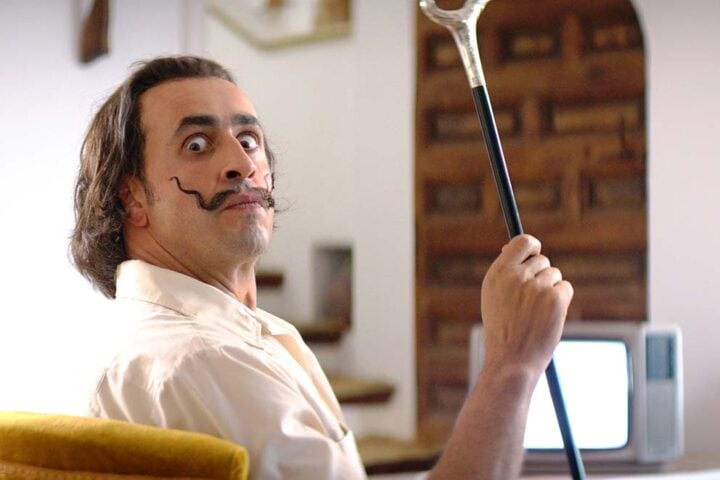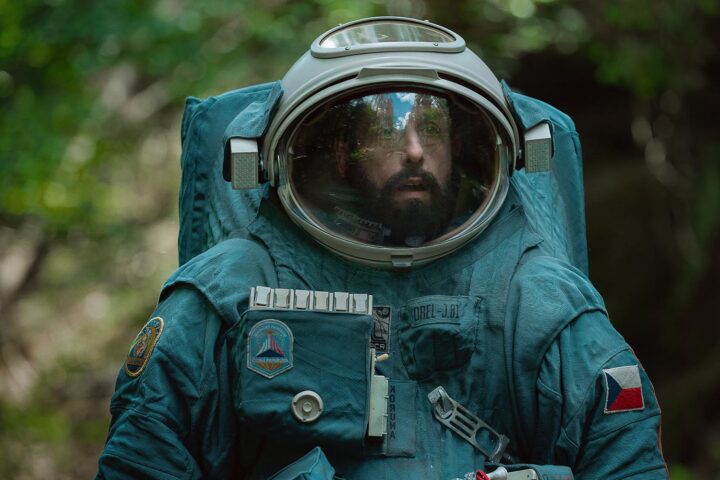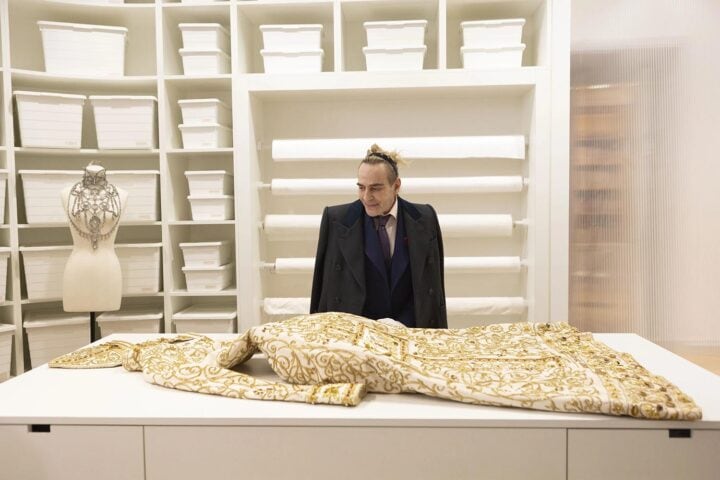Two years after a mysterious malady began to sweep through France, humans continue to mutate into other animal species. Hybrid creatures who aren’t sitting in rehabilitation clinics that are really detention centers roam the streets and countryside. And while there are humans who are paranoid about the malady, pleading for members of their communities to keep each other safe, much of society has adjusted just fine to this strange new reality.
If Thomas Cailley’s The Animal Kingdom sounds like a sociopolitical allegory for a certain pandemic, that’s more an accident of timing than of intention, as the film, which was co-written by Cailley and Pauline Munier, was conceived before Covid-19 was even known to us. In fact, The Animal Kingdom is an allegory for many different ideas, from race relations to coming into one’s queerness. And while its genre hybridity is apt given its premise, in circling the majority of its ideas without really sinking its teeth into them, the film ends up feeling spread thin.
The Animal Kingdom at least begins efficiently enough, and with some effective genre sleight of hand. The film introduces us to a frazzled father, François (Romain Duris), and his teenaged son, Émile (Paul Kircher), as they’re stuck in traffic with the family dog. Before we even find out that François’s wife, Lana, is turning into an ape, and that the family is moving to Gironde, in the south of France, where François plans to work as a chef and a new rehab center is prepared to “treat” her for her condition, we watch a seemingly familiar disaster-movie scenario play out around them. When a winged creature violently bursts out of the back of an ambulance near the family car, the biggest shock is that almost no one raises an eyebrow.
Soon after arriving in Gironde, François and Émile, who has the awkward slouch of a kid going through normal growing pangs, learn that the transport vehicle carrying Lana and other hybrid creatures, or “critters,” to the area went off the road during a storm and that she’s gone missing. The accident brings François into contact with a sympathetic police officer, Julia (a bizarrely underused Adèle Exarchopoulos), who helps François and Émile in their frantic search for Lana. The trio does all they can to locate Lana, but Émile is distracted, as his realization that he, too, is turning into a creature threatens more than just his desire to lead a normal teenage life.
It’s in the film’s second act that Émile comes into contact with Fix (Tom Mercier), the volatile winged creature from the opening scene. Émile, drawn to someone who he feels understands the condition that estranges him from the other kids at his school, gradually helps Fix learn how to fly. Their evolving mentor-mentee relationship works as a nice contrast to the heartwarming, and equally seriocomic, father-son relationship between François and Émile that’s put to the test by the latter’s transformation. One senses that the self-confidence instilled in Émile by his relationship to Fix crucially helps our protagonist leave the metaphorical closet.
That’s The Animal Kingdom at its most lucid and dialed in. Kircher brings a poignant specificity to his performance, his body movements slightly changing to reflect someone going through a kind of puberty you’ve never witnessed before. But that makes it all the more disappointing that the film just skates by the moment that one character sees him as a fetish object, and broaches the subject of people’s intolerance toward the hybrid creatures almost at random. In the end, Cailley’s soft-pedaled approach to his various narrative beats almost gives the film the feel of an extended television pilot, as there’s a lot of seed planting but not quite enough follow through to make The Animal Kingdom feel like a complete story or one that, like Fix, truly takes flight.
Since 2001, we've brought you uncompromising, candid takes on the world of film, music, television, video games, theater, and more. Independently owned and operated publications like Slant have been hit hard in recent years, but we’re committed to keeping our content free and accessible—meaning no paywalls or fees.
If you like what we do, please consider subscribing to our Patreon or making a donation.






